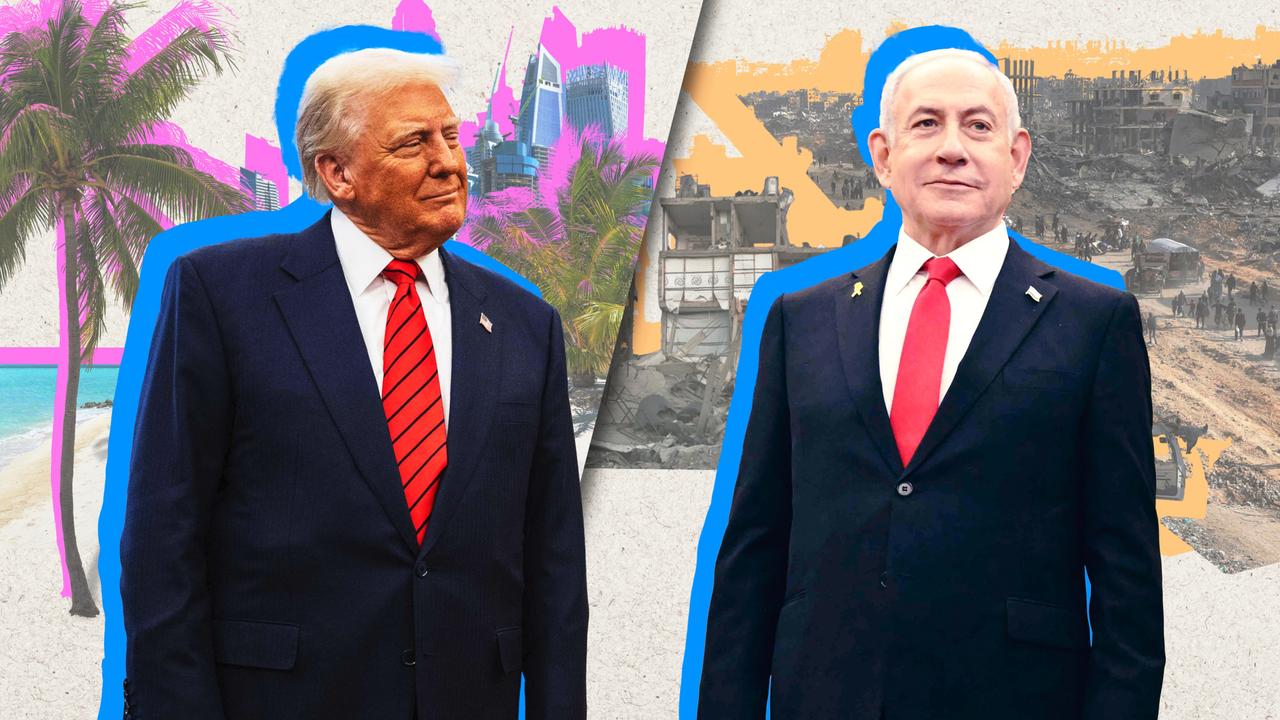Jim Molan: Brave soldier and fearless senator
The shingle on his Senate door read ‘Liberal’, but the office was manned by an independent-minded former soldier whose values were inviolable.
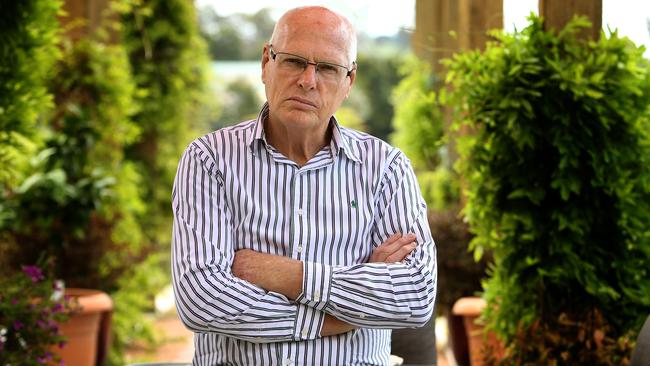
Jim Molan believed war, or at least the prospect of it, should never be a secret.
He probably irritated colleagues, and certainly annoyed the new government, last November when he asked Defence Department officials in a Senate estimates committee what war were they preparing to fight.
They wouldn’t say.
He asked Penny Wong, representing the Minister for Defence, how prepared was Australia for conflict.
She wouldn’t say.
He asked Defence what planning was under way to build Australia’s ability to defend itself given the declining capabilities of our most important ally, the United States.
It wouldn’t say.
He wasn’t trying to panic anyone. He always argued “strategic frankness” was vital to give Australians the confidence that our future was as secure as we could make it. And there were benefits to such honesty. “How can you deter an adversary without giving them at least some idea of your capacity to strategise?” he asked in his final opinion column for this newspaper last year.
Molan wasn’t asking for operational details of our defence force’s workings – in any case he’d have been well aware – just seeking confirmation that we are taking seriously those nations that are a threat to our security and planning our defences accordingly.
He’d been to war and had spent decades training and planning for it. He knew how hard it was to nudge defence analysis away from the ruts and grooves that traditionally trapped its thinking.
With barely an ego, Molan never tried to make a name for himself, he was just concerned for the future of the country he loved and for which he had stood in harm’s way so often.
And he understood, when others didn’t, or couldn’t, the nature of that threat. It wouldn’t be about sending troops to Gallipoli, or Vietnam, or Afghanistan: “War is now more likely than at any point in the past 80 years, but our next conflict won’t involve a few thousand troops on far away shores. It will occur on our doorstep.”
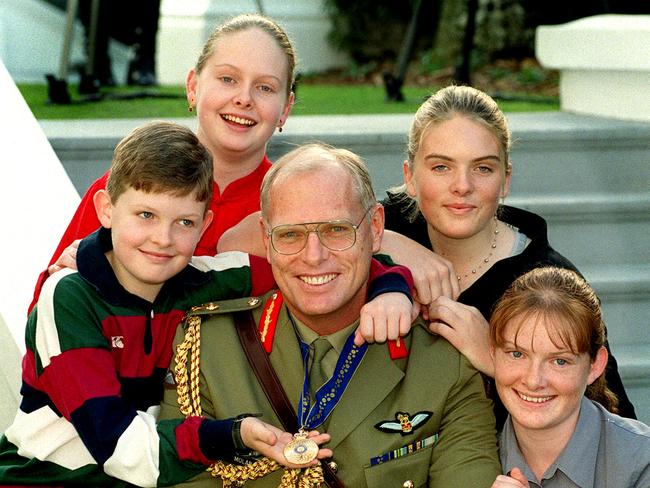
Notwithstanding his warnings in parliament and in print – his most recent book, Danger On Our Doorstep, spelled it out – Molan still believed Australia “will be surprised how the next war breaks out”. Most likely any conflict would start “accidentally” during so-called Fonops (freedom of navigation operations) routines in the South China Sea during which warships might pass within 12 nautical miles, the internationally recognised territorial limit, of another country.
Molan thought US Navy Fonops in the South China Sea were pointless and needlessly provocative. And he believed as China became an increasingly strident bully Fonops would one day give it the opportunity to attack the US. All it needs is “a gung-ho local commander” or “a slip of the finger”. Molan wanted us prepared for the war that might follow.
His favoured maxim was simple: “Be ready and be strong because the world is a nasty and brutal place.”
Unfortunately, not all those who count always listened to the retired major general. Indeed, there were those, particularly in his own Liberal Party, who didn’t want him in parliament at all. Yet few Australians have made such a mark in what was a relatively short and patchy Senate career.
Molan was educated by the Christian Brothers in Melbourne at Parade College, which has a tradition of cultivating distinguished servicemen. He was keen on soldiering and after leaving school aged 17 entered the Royal Military College, Duntroon, completing degrees in arts (UNSW) and economics (UQ), and studying to be fluent in Indonesian.
He served in the Royal Australian Infantry Corps rising through the ranks of the 1st, 3rd and 6th battalions to become a commanding officer. His training was in companies slated to go to Vietnam, but when that conflict ended, Molan was given “the consolation prize of three years in Papua New Guinea” during that country’s transition to independence. It was the first of 35 moves to come as Molan and new wife Anne started married life and a family.
He was soon leading a brigade of 5000 soldiers and then a division of twice that strength.
Molan put his language skills to use first as army attache and later defence attache in Jakarta, where he became solid friends with Prabowo Subianto, another senior soldier and politician who ran second to Joko Widodo for the presidency in 2014. He is now Indonesia’s Minister for Defence. This was the late 1990s and the mood in Jakarta was febrile with the Asian currency meltdown that hit Indonesia hard. This was accompanied by political unrest that saw 1000 killed in riots – Molan was amid the anarchy on the streets monitoring events for his government – and such pressure on long-serving president Suharto that he stepped down in May 1998.
While all this was happening, East Timor’s campaign for freedom peaked with the overwhelming vote for independence in August 1999 and the violence that followed. Molan was sent there to work with Sir Peter Cosgrove as the Australian-led UN forces restored order. Notably, Molan intervened when guns were drawn and pro-Indonesian militia planned to kill Nobel prize-winning Bishop Carlos Belo at an airport as he was being evacuated from Dili, his home having been torched the night before. Speaking to the rebels in Indonesian, Molan calmed the situation, saving at least one life.
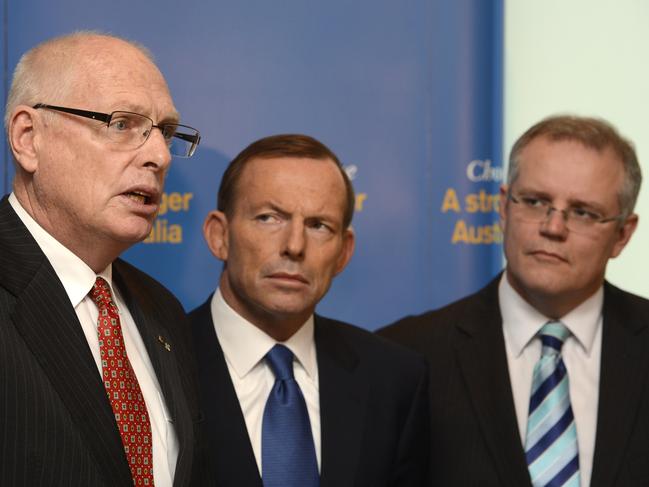
A few years later, it was Cosgrove who urged Molan to accept a role in the command structure of the allied troops in Iraq. As Deputy Chief of Staff for Operations he oversaw the conflict amid the chaos of insurgency and civil war following the invasion by the US-led 28-nation coalition. The multinational forces were about 300,000 strong, half of them Americans, and on average three soldiers were killed each day. It was a balancing act to keep some sort of peace as car bombings and murder, organised by the men who would subsequently give birth to Islamic State, terrorised an Iraq headed to elections. The coalition forces came under intense attacks – sometimes hundreds a day – at this time and a rocket was fired at Molan’s premises killing two Americans. For his actions he was awarded the Distinguished Service Cross and America’s Legion of Merit. The US ambassador to Iraq, John Negroponte, was definite about Molan’s contribution and how it had helped shape events in the Middle East: “Molan excelled as a soldier and as a soldier diplomat (providing) wise counsel and strong leadership,” he wrote to then prime minister John Howard.
Molan’s calm and well-judged book on this campaign, Running the War in Iraq, was a bestseller.
After senior administrative stints in Canberra he retired from the army in 2008 and the following month raised doubts about the nation’s defence preparedness. “I do not believe that we are giving our servicemen and women the tools, the knowledge and the attitude to fight effectively in a modern combat environment.”
Molan had licences to fly fixed-wing aircraft and helicopters, had volunteered as a firefighter, and for a time was director of the National Aerial Firefighting Centre
In 2012 he co-authored the Liberal Opposition’s Operation Sovereign Borders, a military-led response to the climbing rate of illegal migration to Australia, mostly by boats, that had led to more than 1000 deaths at sea.
When Tony Abbott led the Coalition to victory at the 2013 federal election this policy was immediately adopted and illegal arrivals declined steeply.
In 2014, Molan announced he would run for the Senate in NSW beginning an awkward, unpredictable journey in politics where as often as not his enemies were within. He was placed too low on the Senate ticket to win, but after the Nationals’ Fiona Nash resigned, a victim of the dual-nationality eligibility crisis the following year, Molan was chosen to replace her.
He quickly became the best known and sometimes most outspoken Liberal senator with a profile across the country. Nonetheless, he ran third in the Liberal preselection vote for a Senate slot in the 2019 election, placing him on the ticket behind three Liberal colleagues and a Nationals candidate.
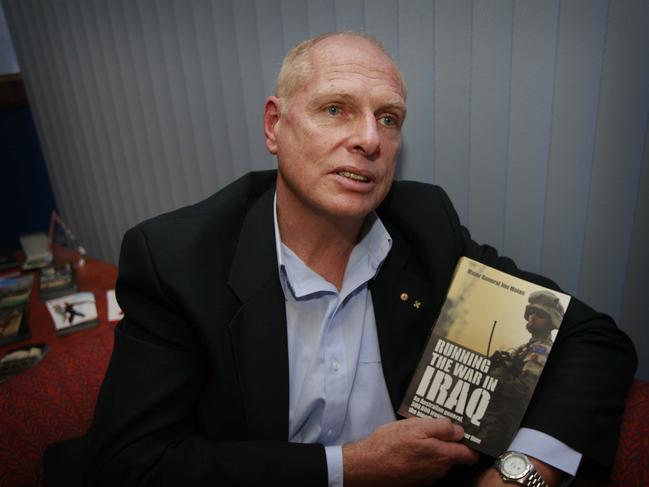
His unconventional campaign to encourage voters to look for his name beneath the line risked dividing the Coalition and, in any case, failed. But once more fate intervened: later that year he was selected to fill the vacancy created when Arthur Sinodinos took up the appointment as ambassador to the US. Finally, at the federal election last year, Molan was re-elected to his Senate spot.
He was a robust supporter of plans to defend Australia with nuclear submarines, which can quietly stay under the seas almost indefinitely or, as he chose to put it, “until the crew’s food runs out”.
His independent thinking, and forthright views that were rooted in vast experience, and his widespread popularity were always going to excite resistance and resentment in a Canberra where such a combination is uncommon. The Greens were particularly belligerent and saw Molan’s experience in and support for Australian defence forces as extreme, and regularly strafed his character with claims resistant to any serious analysis.
Then leader Richard Di Natale said that, under Molan, during the battle for Fallujah – the Iraq War’s bloodiest and most intense – Molan oversaw the denial of food, water and aid to civilians.
His colleague and now leader, Adam Bandt, went further, telling Sky TV: “If there was a proper inquiry, in an independent inquiry into the war in Iraq in Australia … I think you would find Jim Molan would probably be up for prosecution rather than praise for his role in the atrocities in Fallujah.”
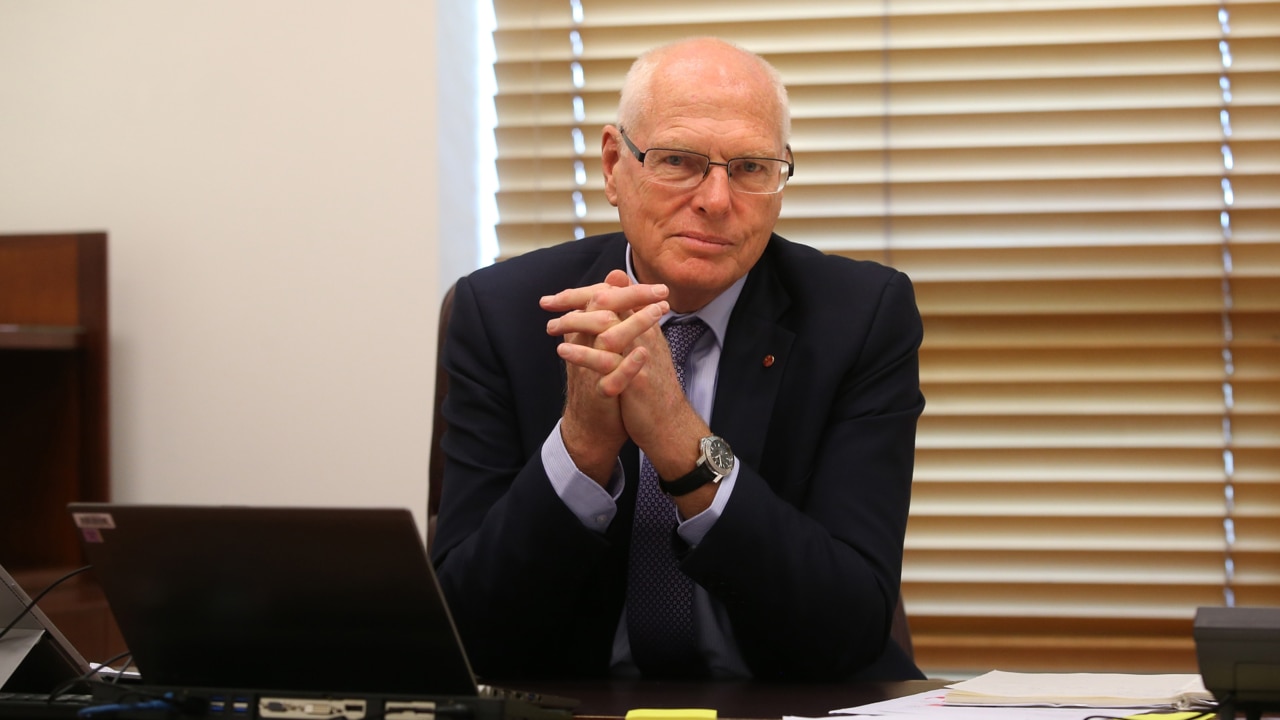
Servicemen and women were appalled by the grotesque attack. When Molan considered suing Bandt, whose own fighting has been restricted to the industrial courts, for this spiteful claim, Bandt buckled with a cowering apology the likes of which parliament had rarely seen: “On Wednesday, I made statements about Senator Jim Molan on Sky TV in relation to his service in Iraq. I wish to publicly say that I was wrong to make such accusations and inferences against Senator Molan. I sincerely apologise and express my regret to Senator Molan and to those who have served in Australia’s operational theatres and to their families and friends who were offended by my comments.”
Former prime minister Tony Abbott on Tuesday fondly recalled his brave former colleague.
“Jim Molan will be remembered as a fearless patriot who served our country with distinction as a soldier and a senator,” said Abbott, who long valued Molan’s campaign against the complacency of our defence posture.
“His most recent book, Danger on Our Doorstep, written while he was under cancer treatment, should be compulsory reading for anyone concerned for our country’s security.”
Abbott praised Molan’s “clear-eyed view of the Beijing regime’s pursuit of global dominance, the catastrophic consequences of war in East Asia, and Australia’s military and psychological unreadiness for such challenges”.
He added that Molan was “never one to shirk a fight, including – if necessary – inside his own team” and “when it mattered he wasn’t afraid to take on the leadership in the party room”.
Andrew James Molan, AO, DSC, soldier and senator. Born East Melbourne, April 11, 1950; died aged 72 on January 16.



